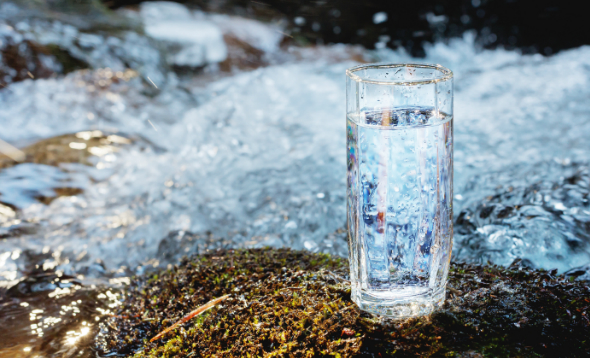That organic living is a conscious health choice
Alkaline Water - Your Questions Answered
Touted by its advocates as a more healthful version of regular tap water, alkaline water has been making waves well beyond the wellness circles.
Alkaline water is believed to be able to detoxify and energise the body – thanks to its ability to reduce acidity levels in the body - leading to better overall health. This has led to an influx of pricey bottled alkaline water, filters and water dispensers in the market.
Before you dive headfirst into this health trend and start stockpiling your pantry with cartons of bottled water, do you really know how alkaline water compares with regular water? Is alkaline water yet another clever marketing campaign or does its health claims actually hold water?
Here are a few key points about alkaline water to help you decide if you should make the swop:
What is alkaline water?
The pH level of any substance refers to its degree of acidity on a scale of zero to 14, zero being the most acidic and 14 being the least. A pH of 7 is considered neutral. Any score above seven is considered alkaline. Alkaline water is basically water that has a higher pH level than regular water.
Why does pH balance matter?
The human body has inbuilt systems to maintain pH balance. Normal blood pH ranges between 7.30 and 7.45. It’s relatively neutral and leans towards alkaline on the pH scale.
Some health professionals assert that even a slight increase in internal acidity levels may lead to undesirable consequences to metabolism, tissue integrity and disease risks in the long term. Many believe that the standard Western diet that’s packed with refined grains, sweeteners, processed ingredients and animal proteins can contribute to an acidic shift in pH levels.
Proponents of alkaline water suggest that by consuming foods and beverages that keep the bloodstream in the neutral pH territory, we can effectively sidestep negative health outcomes.
What are the potential perks?
Here are some health benefits that alkaline water is commonly lauded for:
· Reversing the effects of ageing
· Controlling weight
· Stimulating detoxification of the blood and intestines
· Supporting immunity
· Protecting against cancer and chronic diseases
Are the claims true?
For now, there’s insufficient formal scientific evidence to support these claims. Most studies are limited to small groups and are performed unofficially. However, preliminary findings do reveal some benefits.
For example, alkaline water may help curb acid production for individuals suffering from gastritis, acid reflux and heartburn. Likewise, alkaline waters may modestly improve post-exercise circulation in athletes, thereby improving sport recovery. There may also be benefits for blood pressure, cholesterol and glycemic control.
Are there any drawbacks?
Many alkaline waters offer trace amounts of minerals. The kidneys play a major role in the acid-base and mineral balance of the bloodstream. For individuals with underlying kidney conditions, alkaline waters could possibly affect the kidneys’ functions. It’s also not known how tampering with the body’s pH might affect the efficacy of various medications – renal or otherwise. Some experts raise concerns about the possible weakening of bone integrity with chronic or increased use.
How is alkaline water made?
There are two main ways that alkaline waters are made. One is termed ‘natural’ as it’s achieved via mineralisation – such as when water naturally passes over mineral-rich stones and rocks.
The other utilises equipment called water ionisers that reduce acidity while removing minerals. Generally speaking, the first is preferred as it continues to supply micronutrients, which the body may become deficient in if chronically removed.
How can I tell the pH of water and which one boasts the best pH?
The pH scores for many store-bought brands vary drastically – with some as low as three and others at nearly 10. You can check with manufacturers directly about the pH of most store-bought waters. Charts of the best and the worst ones are also available online.
The pH of tap water depends on the pipes, sanitation processes and the municipal water supply. You can assess the water from your faucet with a pH test kit.
Can you produce alkaline water at home?
Yes! You can filter water from your tap with a filtration system such as a pitcher or an attachment to the faucet. This removes any traces of residue or contaminants left behind after government sanitisation.
You can also purchase purified or distilled water bottles, or dispensing jugs. To reduce acidity levels, you can add a squeeze of citrus, a touch of apple cider vinegar or even a tiny pinch of baking soda to the water. For a holistic approach to encouraging body alkalinity, you can also adjust your diet. Focusing on an alkaline plant-based diet filled with fresh fruits, vegetables, grains, legumes, nuts, and seeds, while reducing the intake of processed foods, sweets and alcohol, may support an overall upward shift in pH, too.


























_1672804154.jpg)

_1611290459.jpg)